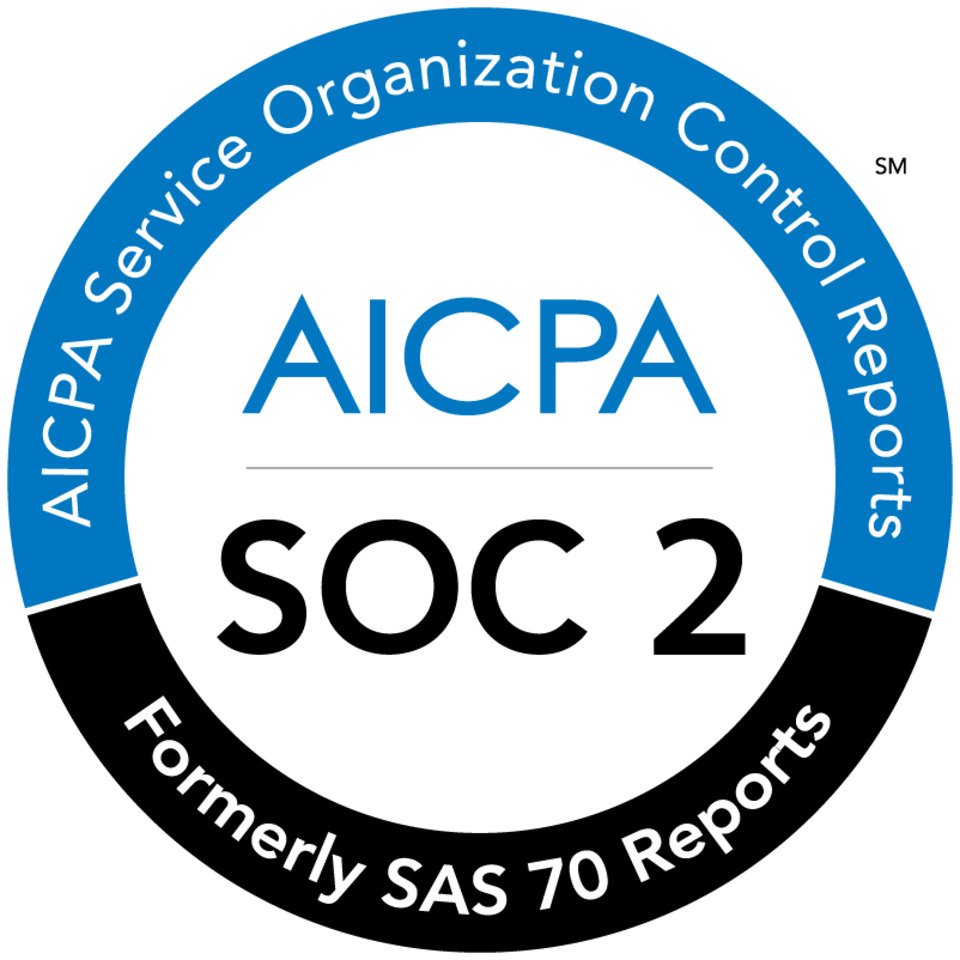AI Copilots for Financial Decision-Making
We partner with industry leaders



Industries That Benefit
Banking Institutions
Banking executives face increasingly complex decisions around digital transformation, business model evolution, and regulatory compliance while managing diverse stakeholder expectations. Traditional analysis approaches lack the speed and comprehensiveness needed for effective modern banking leadership. Capital allocation decisions require sophisticated modeling across multiple business lines and market scenarios. Regulatory requirements demand comprehensive impact assessment before strategic initiatives. Board presentations require quantitative support for complex strategic recommendations with clear risk-return analysis.
Our decision copilots provide:
- Holistic assessment of complex strategic options and their financial impacts
- Detailed analysis of regulatory implications across business initiatives
- Quantitative comparison of competing investment priorities
- Enhanced board and regulator presentations with comprehensive analytical support
Wealth & Asset Management
Wealth management executives must optimize portfolio strategies, resource allocation, and client service models across diverse market conditions and regulatory environments. Investment committee decisions require sophisticated analysis of market scenarios and portfolio implications. Client acquisition strategies demand comprehensive modeling of lifetime value and service costs. Regulatory changes create complex strategic implications requiring rapid assessment. Performance attribution analysis requires detailed evaluation of investment decisions and manager selection.
Wealth management leaders gain:
- Sophisticated portfolio optimization across diverse market scenarios
- Comprehensive client lifetime value and acquisition cost modeling
- Detailed regulatory impact assessment for strategic initiatives
- Enhanced investment committee support with quantitative analysis
Investment Firms
Investment executives must make high-stakes allocation decisions with incomplete information and rapidly changing market conditions. Investment committee deliberations require comprehensive scenario modeling and risk assessment. Fund strategy decisions demand sophisticated analysis of market opportunities and competitive positioning. Limited partner communications require clear quantitative support for investment approaches. Due diligence processes benefit from advanced analytical frameworks for complex investment evaluation.
Investment decision-makers receive:
- Comprehensive scenario modeling for investment committee decisions
- Sophisticated competitive analysis and market positioning assessment
- Enhanced due diligence frameworks for complex investment evaluation
- Quantitative support for limited partner communications and reporting
Fintech Companies
Fintech executives must navigate rapid scaling decisions, regulatory compliance, and competitive positioning with limited historical precedent and constantly evolving markets. Product development priorities require sophisticated analysis of market opportunities and resource allocation. Funding strategies demand comprehensive modeling of growth scenarios and dilution impacts. Regulatory compliance creates complex strategic trade-offs requiring analytical support. Competitive positioning decisions require detailed market analysis and strategic scenario planning.
Fintech leadership benefits from:
- Sophisticated growth scenario modeling and resource allocation analysis
- Comprehensive competitive positioning and market opportunity assessment
- Detailed regulatory compliance impact assessment for strategic initiatives
- Advanced funding strategy analysis with dilution and growth modeling
Capital Markets & Trading
Trading organization executives face complex decisions around technology investments, risk management, and strategic positioning in rapidly evolving markets. Technology infrastructure decisions require comprehensive cost-benefit analysis and performance impact assessment. Risk management strategies demand sophisticated modeling of market scenarios and portfolio implications. Regulatory compliance creates strategic constraints requiring analytical evaluation. Competitive positioning requires detailed analysis of market structure changes and strategic responses.
Trading executives receive:
- Comprehensive technology investment analysis with performance impact modeling
- Sophisticated risk management strategy evaluation across market scenarios
- Detailed regulatory compliance impact assessment for strategic decisions
- Advanced competitive analysis and strategic positioning recommendations
Insurance & Risk Providers
Insurance executives must evaluate complex strategic options across underwriting, investment, and operational dimensions while managing regulatory and competitive pressures. Underwriting strategy decisions require sophisticated risk modeling and profitability analysis. Investment allocation strategies demand comprehensive scenario analysis and regulatory capital optimization. Digital transformation initiatives require detailed cost-benefit analysis and implementation planning. Reinsurance strategies benefit from advanced modeling of risk transfer alternatives.
Insurance leaders gain:
- Comprehensive underwriting strategy optimization with profitability modeling
- Sophisticated investment allocation analysis with regulatory capital considerations
- Detailed digital transformation planning with cost-benefit assessment
- Advanced reinsurance strategy evaluation and risk transfer optimization
Crowdfunding & Alternative Finance
Platform executives must make strategic decisions around market expansion, regulatory compliance, and competitive positioning with limited industry precedent. Platform development priorities require sophisticated analysis of user acquisition costs and lifetime value. Regulatory compliance strategies demand comprehensive impact assessment across diverse jurisdictions. Competitive differentiation requires detailed market analysis and strategic positioning. Funding and partnership decisions benefit from advanced scenario modeling and strategic evaluation.
Platform decision-makers receive:
- Comprehensive platform development strategy with user economics modeling
- Sophisticated regulatory compliance strategy across multiple jurisdictions
- Detailed competitive differentiation analysis and strategic positioning
- Advanced partnership and funding strategy evaluation with scenario modeling
Corporate Finance & Treasury Divisions
Corporate finance executives face complex decisions around capital structure, investment allocation, and financial risk management across diverse business operations. Capital allocation decisions require sophisticated analysis of competing investment opportunities and strategic alternatives. Treasury strategy decisions demand comprehensive modeling of funding options and liquidity management. Financial risk management requires advanced scenario analysis and hedging strategy evaluation. Strategic planning benefits from detailed financial modeling and sensitivity analysis.
Finance and treasury leaders gain:
- Comprehensive capital allocation analysis with competing priority evaluation
- Sophisticated treasury strategy optimization with funding and liquidity modeling
- Detailed financial risk management with advanced scenario analysis
- Enhanced strategic planning support with comprehensive financial modeling
Problems or Missed Opportunities We Solve
Decision Complexity Overwhelming Traditional Analysis
Financial executives face decisions with 50+ interconnected variables, far exceeding human cognitive capacity to evaluate comprehensively. Traditional analysis tools examine only 3-5 variables simultaneously, creating dangerous blind spots in strategic evaluation.
Our approach:
- Analyzes hundreds of factors simultaneously with sophisticated modeling
- Identifies non-obvious relationships between decision variables
- Provides truly comprehensive scenario analysis
- Eliminates cognitive limitations in complex financial decisions
Siloed Information Creating Suboptimal Decisions
Critical financial data exists in disconnected systems across finance, operations, risk, and market intelligence functions. Most organizations lack integrated views of all relevant factors, leading to decisions based on incomplete information.
The solution provides:
- Unified analysis combining internal and external data sources
- Integration of financial, operational, and market intelligence
- Elimination of departmental information silos
- Truly comprehensive decision support based on all available information
Time Pressure Forcing Analytical Shortcuts
Financial leaders often make decisions under severe time constraints that prevent thorough analysis. Executive teams typically analyze only 2-3 scenarios before making major decisions due to time limitations, potentially missing superior alternatives.
Advanced copilots deliver:
- 10-15x faster scenario analysis than traditional methods
- Comprehensive evaluation of dozens of alternatives
- Rapid recalculation as new information becomes available
- Enhanced decision quality despite time constraints
Confirmation Bias Affecting Financial Judgment
Even experienced executives unconsciously favor information supporting their initial hypotheses while underweighting contradictory evidence. This cognitive bias creates systematic decision flaws that impact financial performance.
The technology provides:
- Objective analysis without confirmation bias
- Equal evaluation of all strategic alternatives
- Surfacing of contradictory evidence and challenging data
- Reduced cognitive bias in executive decision-making
Ineffective Executive Communication
Financial leaders struggle to communicate complex analyses effectively to boards, investors, and stakeholders. Presentation materials often fail to convey the full analytical rationale behind major decisions.
Decision copilots enable:
- Clear visualization of complex financial scenarios
- Compelling communication of analytical support for decisions
- Interactive exploration of alternatives during presentations
- Enhanced stakeholder confidence in executive judgment
Case Study
Real Results from Financial Leaders
KYC Automation for a German Payments Fintech
A mid-sized German payment gateway with 180 employees processing approximately €700-800M in annual transactions, active in 6 EU markets.
- 28% conversion increased
- 40% improved performance
Conversational AI for a Spanish Insurance Firm
A traditional Spanish insurance provider with 85 years of history, 950 employees, and €280 million in annual premiums across home, auto, life, and commercial lines.
- 28% conversion increased
- 40% improved performance
Real-Time Fraud Detection in UK Digital Payments App
A fast-growing UK-based mobile payment application with 165 employees processing approximately £1.3 billion in annual transaction volume with around 700k active users.
- 28% conversion increased
- 40% improved performance
AI Copilot for Treasury Operations at a Spanish Payment Orchestration Platform
A mid-sized German payment gateway with 180 employees processing approximately €700-800M in annual transactions, active in 6 EU markets.
- 28% conversion increased
- 40% improved performance
Certifications & Compliance



Benefits of Using the Solution

Superior Strategic Decisions
Make complex financial choices with comprehensive understanding of implications, alternatives, and trade-offs. Organizations report 30-40% higher confidence in strategic decisions and measurably improved outcomes compared to traditional analysis approaches.

Accelerated Decision Velocity
Compress weeks of analysis into hours through sophisticated modeling that evaluates multiple scenarios simultaneously. Financial teams achieve 75-85% reduction in analysis time for complex decisions while actually improving analytical depth and accuracy.

Enhanced Executive Communication
Present strategic recommendations with compelling quantitative support and clear visualization of complex factors. Leadership teams report 40-50% improvement in board and stakeholder acceptance of proposed approaches due to superior analytical backing.

Risk Reduction in Strategic Execution
Identify potential pitfalls and contingencies before implementing major initiatives. Organizations experience 60-70% fewer negative surprises during strategic execution through comprehensive pre-decision scenario analysis and risk identification.

Optimal Resource Allocation
Deploy capital and resources to their highest-value applications across the organization. Financial executives achieve 15-25% improvement in return on invested capital through more precise understanding of expected returns and risk-adjusted outcomes.
Process Flow

Executive Requirements Assessment
Data Integration & Model Development
Copilot Configuration & Customization
Test Case Validation & Refinement
The system undergoes rigorous testing against historical decisions and current scenarios to validate accuracy and relevance. This validation process confirms the copilot provides valuable insights that enhance executive judgment in real-world situations.
Executive Onboarding & Integration
Continuous Learning & Enhancement
Why Aspagnul Is the Ideal Partner
Financial Leadership Expertise
The Aspagnul team combines deep expertise in financial strategy, executive decision-making, and advanced analytics developed through years of experience in global financial institutions. This specialized knowledge ensures our copilots address the actual challenges financial executives face rather than providing generic analytics.
Our team includes former CFOs, treasurers, and financial strategists who understand both the quantitative and qualitative dimensions of complex financial decisions, creating systems that truly enhance executive judgment rather than simply providing data.
Advanced Financial Modeling Capabilities
Our platform incorporates sophisticated financial modeling methodologies that go far beyond conventional spreadsheet analysis, including dynamic simulation, multivariable optimization, and predictive analytics specifically calibrated for financial applications.
These capabilities enable truly comprehensive scenario evaluation that captures the full complexity of modern financial decisions, including interdependencies and non-linear relationships that simpler models miss entirely.
Secure Executive-Grade Infrastructure
Our copilot platform is built on enterprise infrastructure that meets the most stringent security, reliability, and compliance requirements of global financial institutions. The technology maintains ISO 27001, SOC 2 Type II, and GDPR certifications with bank-grade encryption and access controls.
This purpose-built architecture provides the security and reliability that executive decision support demands, with guaranteed availability during critical decision windows.
Seamless Enterprise Integration
The solution connects smoothly with your existing financial systems, data warehouses, and executive tools through secure API integration and flexible deployment options. This connectivity ensures comprehensive data access without disrupting established workflows or requiring major IT initiatives.
The platform has established integrations with major financial and enterprise systems, enabling rapid implementation without extensive technical projects.
Proven Executive Adoption
Our approach is specifically designed for busy executives, with intuitive interfaces that require minimal training and deliver immediate value. This executive-focused design achieves adoption rates exceeding 90% among leadership teams, ensuring the technology actually influences important decisions rather than becoming shelfware.
Frequently Asked Questions
Our approach fundamentally respects the irreplaceable value of executive experience and judgment while enhancing decision quality through complementary analytical capabilities. The technology handles computational complexity—analyzing hundreds of variables simultaneously, simulating multiple scenarios, and identifying non-obvious relationships—that exceeds human cognitive capacity regardless of experience level.
This analytical support allows executives to focus their judgment on strategic implications, stakeholder considerations, and organizational context where human wisdom remains essential. In practice, leaders describe the experience as having a tireless analytical partner who handles quantitative complexity while leaving strategic judgment firmly in human hands. Financial executives report 30-40% more confidence in decisions supported by our copilots compared to traditional analysis methods.
Implementation typically requires 4-6 weeks for initial capability deployment, with additional functionality phased in over 8-12 weeks based on your priorities. The process requires limited involvement from your team—typically 2-4 hours weekly from finance leadership and IT stakeholders during the implementation phase.
Our methodology focuses on minimizing demands on executive time while ensuring the system addresses your specific requirements. Initial configuration uses existing documentation and data sources wherever possible to accelerate deployment without creating additional work for your team. Financial organizations can implement sophisticated decision support with significantly less resource commitment than conventional technology projects of similar strategic value.
Financial data security forms the foundation of our approach, with multiple protective layers including end-to-end encryption, comprehensive access controls, detailed activity logging, and secure development practices. The solution operates entirely within your security perimeter, with options for on-premises deployment, private cloud configuration, or hybrid models based on your security requirements.
All operations comply with financial data protection regulations including ISO 27001, SOC 2 Type II, and GDPR requirements, with regular independent security audits and certifications. These measures ensure your strategic information receives protection that meets or exceeds the standards applied to your most sensitive financial systems.
While the system is customized to your specific requirements, we find particular value in five decision categories: complex resource allocation (capital deployment, investment prioritization), strategic transactions (acquisitions, divestitures, partnerships), financing optimization (capital structure, funding strategy), risk policy decisions (limits, hedging strategy, concentration management), and organizational transformation (restructuring, cost initiatives, growth investments).
These decisions share characteristics that benefit most from computational support: multiple interacting variables, complex implications across business functions, significant uncertainty requiring scenario analysis, and substantial financial impact where improved decisions deliver measurable value. The copilot’s capabilities are configurable to your organization’s specific decision types and analytical requirements.
Analytical quality assurance forms a critical element of our implementation methodology, with multiple validation mechanisms: backtesting against historical decisions to compare system recommendations with actual outcomes, sensitivity analysis to ensure stability across variable inputs, parallel validation against existing financial models to confirm computational accuracy, and ongoing performance monitoring with regular recalibration.
For financial projections and scenario analysis, the system implements sophisticated confidence intervals and explicit uncertainty quantification rather than single-point estimates. This approach provides executives with transparent understanding of analytical limitations and areas of greater certainty, ensuring appropriate interpretation of the system’s output in decision processes.
Financial organizations typically see returns in three primary areas: decision quality improvements (15-25% better financial outcomes through more comprehensive analysis), time efficiency (75-85% faster analysis of complex scenarios), and risk reduction (60-70% fewer negative surprises in strategic execution).
These benefits typically deliver ROI exceeding 5x in the first year for most implementations, with specific returns depending on your decision volume, typical transaction size, and current analytical approach. For major strategic decisions where the copilot provides even modest improvements in outcome quality, a single enhanced decision often delivers ROI for the entire implementation. We establish baseline measurements during initial assessment and track improvements against these metrics to provide clear value documentation.
Let’s get in touch
We’re excited to hear from you and to start something special together.
- Money-back guarantee if you don’t receive what we promise.
- Full financial and technical analysis of your current situation.
- Full support from the moment of our first contact.
Quick contact

Turn your financial operations with purpose-built AI solutions that reduce costs, accelerate growth, and ensure regulatory compliance across financial institutions.
